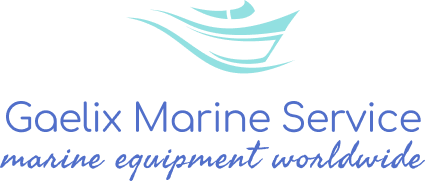
Authors of the photos: Gelex Global Group, Allures Yachting
Boats designed for marine environments are among the leading water transport means due to their popularity. They offer extensive opportunities for recreation, sports, and commercial activities at sea. In this review, we will explore the main types of sea boats and their key characteristics, as well as discuss the advantages of RIB boats from the company “GALA.”

Main Features of Sea Boats
High Hull Strength Boats capable of navigating marine zones must have high strength, which is one of the main criteria when choosing this type of transport. The material of the hull, the thickness of the side and bottom walls, and the quality of welding all affect the rigidity and reliability of the hull. For instance, lightweight and reliable leisure RIBs by Gala and professional Galaxy boats use aluminum alloy EN AW-5083H111, renowned for its high strength and exceptional corrosion resistance in seawater. Welding of EN AW-5083H111 alloy using TIG (Tungsten Inert Gas) and MIG (Metal Inert Gas) methods ensures high joint strength. This is especially important for creating durable hulls capable of withstanding extreme loads in harsh operating conditions. The use of special alloy and modern hull welding technology ensures safety at sea, where boats are subject to various mechanical stresses.
Corrosion Resistance

In the aggressive marine environment, corrosion is a serious problem for any vessel. Aluminum, which is often used for RIB hulls, has excellent anti-orrosion properties that protect it from corrosion. However, advanced brands like Gala and Galaxy go a step further by using chemical treatment of aluminum called passivation. This special protection of aluminum surfaces from corrosion involves the use of a non-chromate titanium passivation system called ENVIROX. The ENVIROX passivation system with titanium creates a protective layer on aluminum hulls. This innovative approach not only reduces the harmful environmental impact by replacing chromates with eco-friendly components but also ensures high corrosion resistance. Safety Ensuring maximum safety is a priority for sea boat manufacturers. This is achieved through modern navigation systems, safety equipment, and the use of other innovative technologies.
Ease of Handling

Handling marine boats is extremely simple and intuitive. This makes them accessible even to beginners, allowing for quick learning of handling and maneuvering on the water. Advantages of Gala RIBs for Coastal Sea Zones Comfort and Reliability RIBs from the “Gelex Global Group” are deservedly popular among water adventure enthusiasts due to their strengths – reliability and comfort. This is especially important for people who value their time and want to enjoy boat trips with minimal repair and maintenance costs.
Appearance

The impressive and solid appearance of Gala boats emphasizes the prestige and social status of their owners, making each RIB not just a means of transportation, but also a status accessory. Wide Range of Additional Equipment Moreover, all Gala and Galaxy models have a wide range of additional equipment and accessories to meet the needs of every owner. These can include various accessories to enhance comfort on the boat, navigation equipment, sailing tents, communication systems, and much more. We will install any additional equipment on your boat. Speed The ability of GALA aluminum RIBs to reach high speeds, combined with excellent stability, allows them to easily navigate the seas. Economy Fuel economy at high cruising speeds is one of the main advantages of aluminum boats since it is well known that aluminum boats are lighter than fiberglass counterparts of the same size. This allows aluminum boats to use less powerful engines. For example, the recommended engine power for the Gala Atlantis Deluxe A500L RIB is 70 HP, while a fiberglass RIB of the same size, such as the Grand G500, requires a more powerful engine – at least 90 HP.
Light Weight of Aluminum Boats

Aluminum boats are lighter compared to boats made from other materials such as steel or fiberglass, which facilitates their transport and maneuvering. The lightness of the material reduces fuel consumption, making boat operation more economical. Additionally, the reduced weight eases the process of launching and retrieving the boat from the water, and, if necessary, towing on a trailer.
The main advantages of the lightweight nature of aluminum boats include:
Ease of Transportation:
The lighter weight of the boat simplifies its transport on a trailer and allows for the use of less powerful vehicles for towing.
Fuel Efficiency:
Due to their low weight, boats require less energy to move, reducing fuel consumption and operating costs.
Convenience in Operation:
Lightweight boats are easier to launch and retrieve from the water, which is especially convenient for boats used as tenders on large yachts.
Improved Maneuverability:
A lightweight boat hull ensures better maneuverability and handling, which is important for safe navigation and quick response to changing water conditions.
Ease of Maintenance:
Lightweight aluminum boats are easier to maintain and repair, contributing to their longer lifespan and reduced maintenance costs.
Conclusion

Aluminum boats are outstanding transportation means due to their unique properties and advantages. Their popularity is growing thanks to the combination of lightness, strength, and durability, making them ideal for various water conditions and activities.
Thanks to these advantages, aluminum boats are an excellent choice for active recreation enthusiasts, professional fishermen, and those who need reliable and durable water transport.
